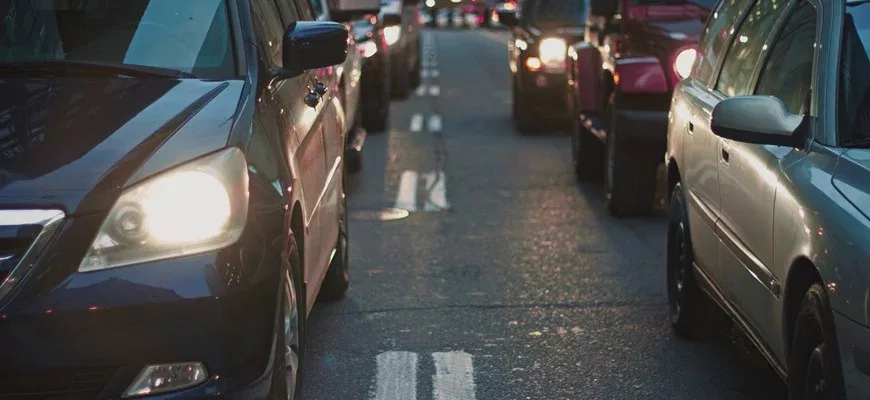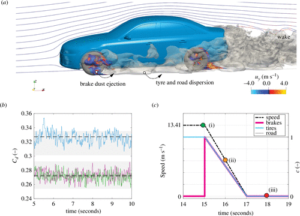The lockdowns associated with the pandemic have left Britain’s greenhouse gas emissions 9.5% lower in 2020 compared to 2019 but transport emissions are still on the rise.
The fall in emissions followed work-from-home and stay-at-home measures that led to major declines in emissions from transport, which is the most polluting sector of the economy following the phasing-out of coal-generated power, reports the Independent.
A report published by the Department for Business, Energy and Industrial Strategy (BEIS) said: “Over half of the decrease in greenhouse gas emissions between 2019 and 2020 was from the reduction in emissions from transport, which were down 19.2% due to the large reduction in the use of road transport during the nationwide lockdowns. Despite this decrease, transport remained the largest emitting sector, responsible for 24% of all greenhouse gas emissions in the UK.”
However, the report does not cover the past 12 months, during which the economy has largely re-opened and workers have moved much more freely around the country.
There are now major concerns that the government is failing to take meaningful action on transport which could make it difficult to hit its legally-binding net zero target, said the Independent report.
Research published last week found the government’s current spending plan, including cuts to taxes for internal flights and a £27bn road building programme, will add 38 million tonnes of carbon to the atmosphere over the next four years.
Carla Denyer, the co-leader of the Green Party, said the new figures from Beis “do not provide any reassurance”. She told the newspaper: “Greenhouse gas emissions have rebounded since 2020 as the government has continued to resist meaningful investment in cleaner transport, renewable energy and better-insulated homes,” she told The Independent.
“Public transport remains inaccessible or unaffordable in most places outside London. Yet the government is still throwing an absurd £27bn into building new roads, even though their own climate advisors warn very clearly that this could increase greenhouse gas emissions. That money would be much better spent on public transport, walking and cycling.”
But the research showed the extent to which the move towards cleaner energy sources has cut greenhouse gas emissions, with climate-altering gases have fallen by almost half (49.7%) between the baseline year of 1990 and 2020. 2020 marks the half-way point for the 2050 target to reach zero emissions overall, said the report.
In 2020, the UK’s total emissions were estimated to be nearly 406 million tonnes, a fall of 9.5% from 448 million tonnes in 2019, and compared to 806 million tonnes in 1990, said the report.
“Not only do we have all of the key technologies necessary, but many have been developed to the point where they are more economically efficient than the dirty tech they will replace. We have ambitious high-level targets which have been incorporated into law. We have, more or less, done the prep. But what we don’t have is time, and what we haven’t seen yet, and urgently need, is delivery.
“We need to see much more renewable energy and storage deployed, and energy efficiency measures, so that we can end our dependence on expensive and dirty gas in our homes and factories, and we need to cut down on industrial meat production. This will cut emissions and, with the right incentives, create jobs and prosperity. It can be a win-win.”
She added: “The government will need to face down the wealthy vested interests resisting the changes we need – first and foremost, the fossil fuel lobby.”
A Beis spokesperson said: “Whilst the changes to our society and economy during the pandemic will have inevitably impacted greenhouse gas emissions, we continue to make significant progress in reducing emissions on our path to net zero by 2050.
“Moving forward, we are building on the UK’s track record of having decarbonised faster than any other G7 country, by doubling down on our plan to build a strong, home-grown renewable energy sector to further reduce Britain’s reliance on fossil fuels.”

























